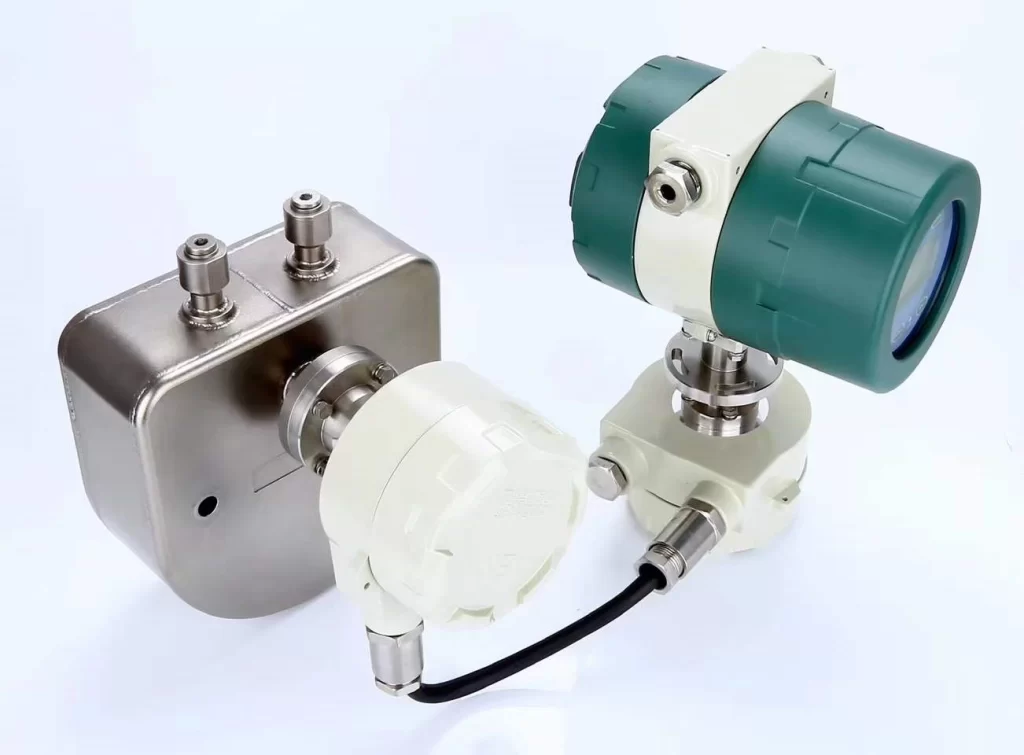The Density Flow Meter stands out as a key instrument that serves this very purpose. At its core, a density flow meter is a device designed to measure the density of a fluid as it flows through a system. But why is this so crucial? Knowing the exact density of a substance can influence decisions ranging from quality control in manufacturing to safety protocols in transportation. Different industries, such as oil & gas, food & beverage, and pharmaceuticals, rely heavily on these meters to ensure that their operations run smoothly and efficiently.

Featured Density Flow Meters
The Science Behind Density Flow Meters
At the heart of a density flow meter lies a blend of physics and engineering that enables precise measurements. To grasp how these instruments work, we need to dive a bit into the principles that drive them.
Principle of Operation: Density flow meters, particularly the Coriolis-type, operate based on the Coriolis effect. When a fluid or gas flows through an oscillating tube, it experiences a force (Coriolis force) that causes a measurable phase shift in the tube. This shift is directly related to the mass flow rate of the fluid.
Mathematics of Measurement: The phase shift mentioned above can be mathematically represented by the formula:
Fc=2m⋅v⋅ω
Where:
Fc= Coriolis force
m = mass of the moving fluid
v = velocity of the fluid
ω = angular velocity of the oscillating tube
Density Determination: The meter not only measures the mass flow rate but also determines the density of the fluid. It does this by monitoring the frequency of the tube’s oscillation. Changes in fluid density cause shifts in this frequency, allowing the meter to compute the fluid’s exact density.
In essence, the science behind density flow meters is a blend of physical forces and mathematical calculations. These tools, with their rooted scientific principles, offer industries a reliable way to gauge the density and flow of their fluids.
Difference between Density Flow Meters and Traditional Flow Meters
Density flow meters and traditional flow meters serve similar primary functions – they measure the flow of fluids. However, the methods they employ and the information they provide can differ substantially. Let’s break down their differences:
Measurement Principle:
Density Flow Meters: These meters, especially Coriolis-type, use the Coriolis effect. They measure mass flow directly by detecting the phase shift in an oscillating tube caused by flowing fluids.
Traditional Flow Meters: These often measure volumetric flow. Devices like turbine or paddlewheel flow meters calculate flow based on the rotation speed of a turbine or wheel placed in the fluid’s path.
Data Output:
Density Flow Meters: They not only provide mass flow rates but also measure the density of the fluid. Thus, they give dual information from a single device.
Traditional Flow Meters: Typically, these meters provide only volumetric flow data unless paired with additional sensors or equipment.
Accuracy & Calibration:
Density Flow Meters: Often, they offer higher precision as they directly measure mass flow. Calibration is essential for optimal accuracy.
Traditional Flow Meters: While they can be accurate, changes in fluid properties (like temperature or viscosity) can influence readings unless compensated.
Application Suitability:
Density Flow Meters: They’re versatile and can be used with varying fluid types, including those with changing properties.
Traditional Flow Meters: They’re best suited for specific fluid types and conditions for which they’ve been calibrated.
Infrastructure Needs:
Density Flow Meters: Generally require minimal infrastructure changes, with some designs being compact and easy to integrate.
Traditional Flow Meters: Might require additional setups, like straight runs of pipes, to ensure accurate measurements.
In conclusion, while both density flow meters and traditional flow meters have their place in industries, the former offers a more comprehensive and direct approach to flow measurement. Choosing between them depends on the specific needs and conditions of each application.
FAQ
More Detection and Analysis Sloutions
Top Liquid Flow Meters in Industry
Single/multi Gas-Gas Detector-Industrial Gas Concentration Detector
Industrial Online Dew Point Meters | Sino-Inst
Industrial Slurry Density Measurement-Featured Slurry Density Meters
Density 101: What Is the Unit of Measurement for Density
Industrial Applications of Various Density Meters
The density flow meter, with its unique capability to measure both flow and density, stands out as an invaluable tool. Its precision, backed by science and innovative engineering, makes it a preferred choice for many professionals.
Beyond density flow meters, there’s a vast realm of measurement devices essential for various applications. Whether you’re looking to measure flow rate, gauge liquid levels, or monitor temperature, the right instrument can significantly impact the accuracy and efficiency of your operations.
At Sino-Inst, we pride ourselves on being seasoned manufacturers and suppliers, offering an extensive range of measurement instruments. From flow meters to temperature and level measuring devices, our offerings are diverse and tailored to the industry’s evolving needs.
Request a Quote
Wu Peng, born in 1980, is a highly respected and accomplished male engineer with extensive experience in the field of automation. With over 20 years of industry experience, Wu has made significant contributions to both academia and engineering projects.
Throughout his career, Wu Peng has participated in numerous national and international engineering projects. Some of his most notable projects include the development of an intelligent control system for oil refineries, the design of a cutting-edge distributed control system for petrochemical plants, and the optimization of control algorithms for natural gas pipelines.